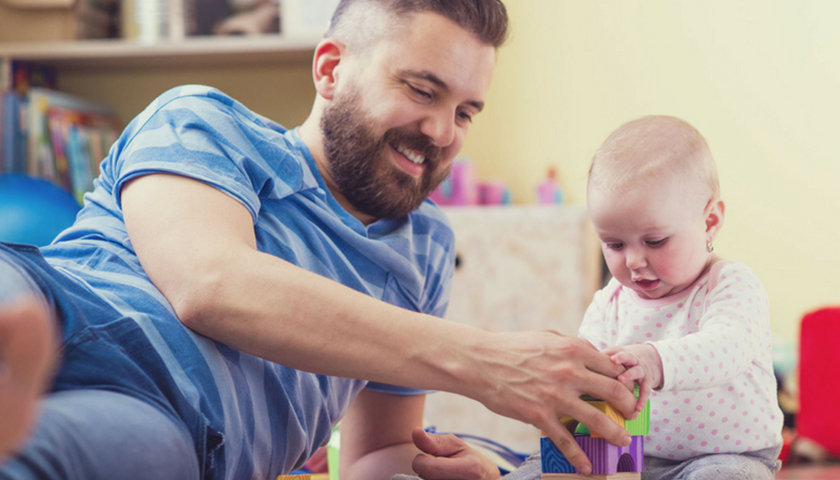
Moms, Don’t close the gate on the Dads!
by Yash Saboo June 19 2018, 4:13 pm Estimated Reading Time: 2 mins, 39 secsWhile dads are super-cool and playful with their babies, they sometimes lack an emotional connect. There’s a reason for that. A new study suggests that a new mother's reaction to her partner’s early interactions with their baby may affect his parenting quality later on. According to the researchers, fathers did not perform as well as a parent to their 9-month-old child if the dads felt their partner was critical of their parenting skills six months earlier.
While few fathers may be willing to admit to having an initial emotional disconnect with regard to their newborn child, psychological experts say such feelings are far from uncommon.
Time stated that the study, which was published in the Journal of Child and Family Studies, looked at data on 182 couples who were asked questions and observed interacting with their child on two occasions, three months after the birth, then again at nine months. Fathers who felt their children’s mothers either denigrated their skills or took over from them were less engaged and warm when playing with their kids six months later.

Source: CustomizedInc
"The behaviours of mothers can shape how fathers interact with their children. Mothers may not even be aware of how their criticisms of the father may end up negatively influencing how they parent," said lead author Lauren Altenburger from The Ohio State University in the US.
"If fathers feel their partners don't have confidence in their parenting, they may withdraw and become less positive and sensitive with their child."
The results reflect the fact that, in our society, mothers still have the most power and influence when it comes to raising children, said study co-author Sarah Schoppe-Sullivan, professor of human sciences at Ohio State. “Many fathers may be more vulnerable to criticism than mothers are because there is still less support in our society for fathers as active, involved parents,” she said.
One theory is that mothers may close the gate on fathers because dads show evidence of poor parenting. But in this study, poorer parenting at 3 months was not linked to maternal gate closing at 9 months, which would be expected if this theory were correct. Schoppe-Sullivan noted that this sample of dual-earner couples may be different from other families. “We might see more evidence of protective gatekeeping by mothers in more distressed families,” she said.
The researchers said that both mothers and fathers need to be supportive of each other in those early months after their first baby is born. “The transition to parenthood is challenging and both parents often feel vulnerable”, Schoppe-Sullivan said, “because they are still developing their identities as parents”.
But fathers may be especially vulnerable to criticism.
Maternal encouragement (known in this study as gate-opening) was also covered but it appeared to have no effect on the father’s parenting skills and commitment at nine months.
“Becoming a parent is a significant life course event,” says Altenburger. “If both parents work together as a team to communicate openly about parenting strategies, positive consequences for fathers’ parenting quality, and, in turn, child adjustment may follow.”





-173X130.jpg)




-173X130.jpg)
-173X130.jpg)